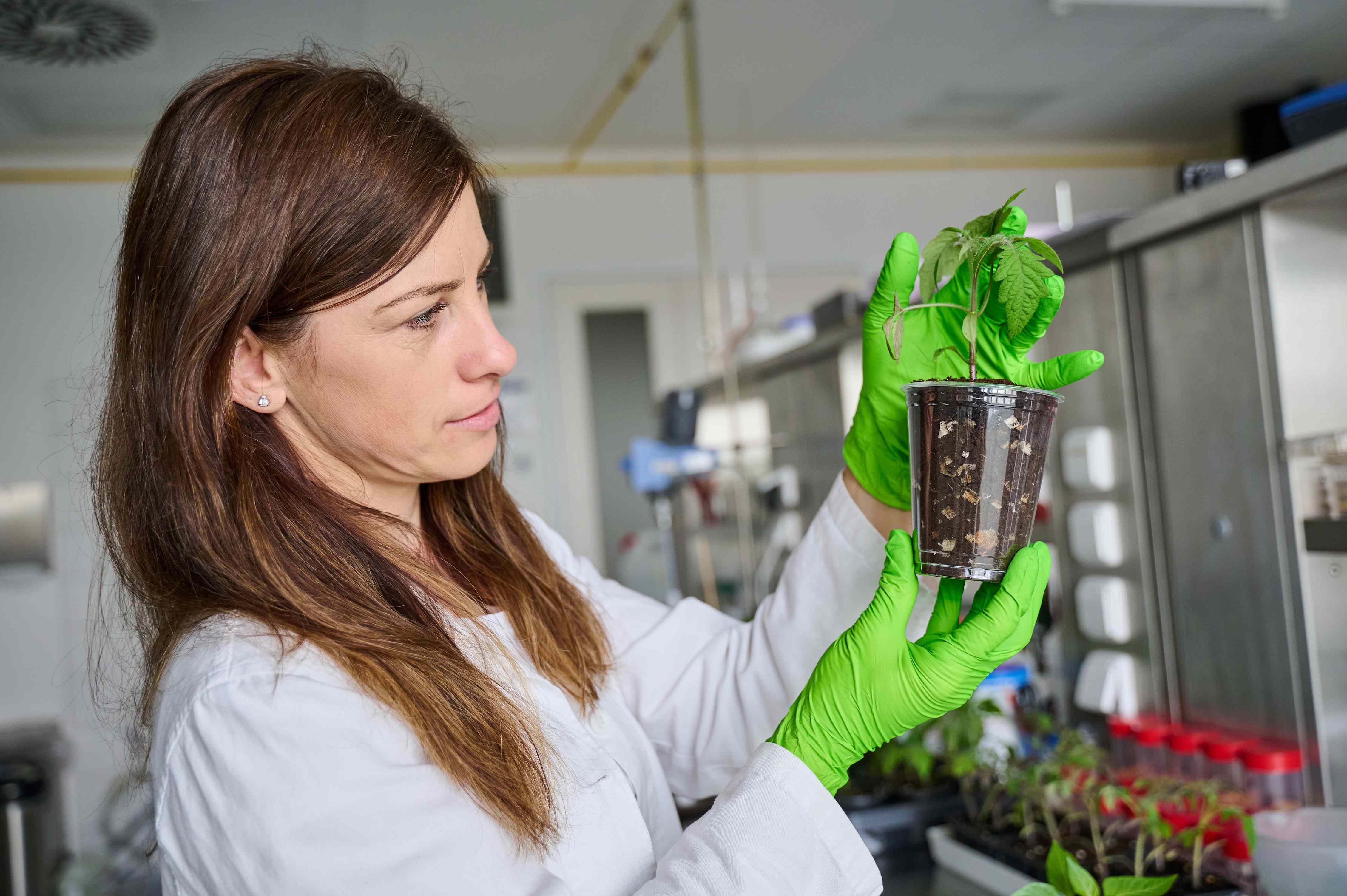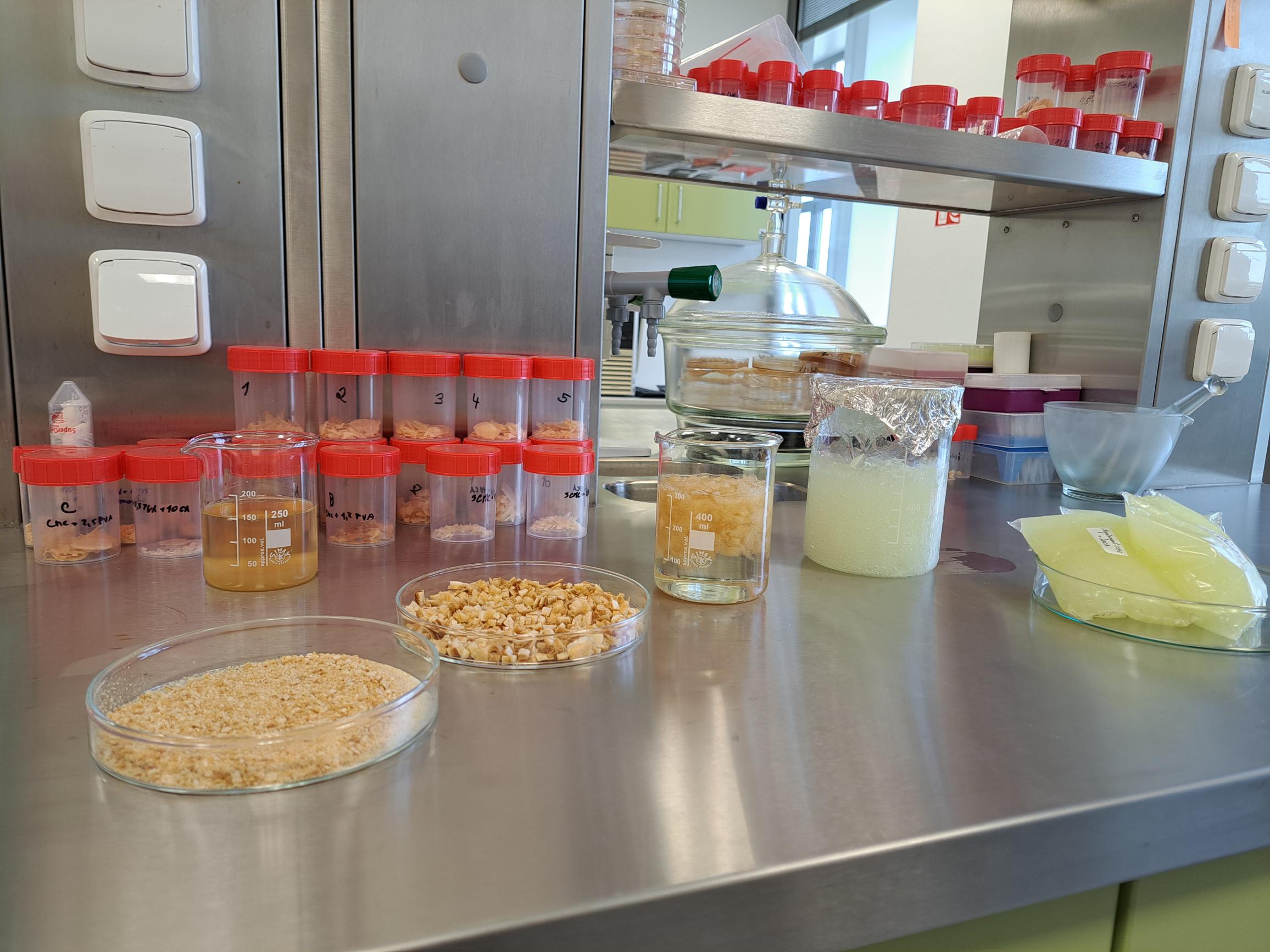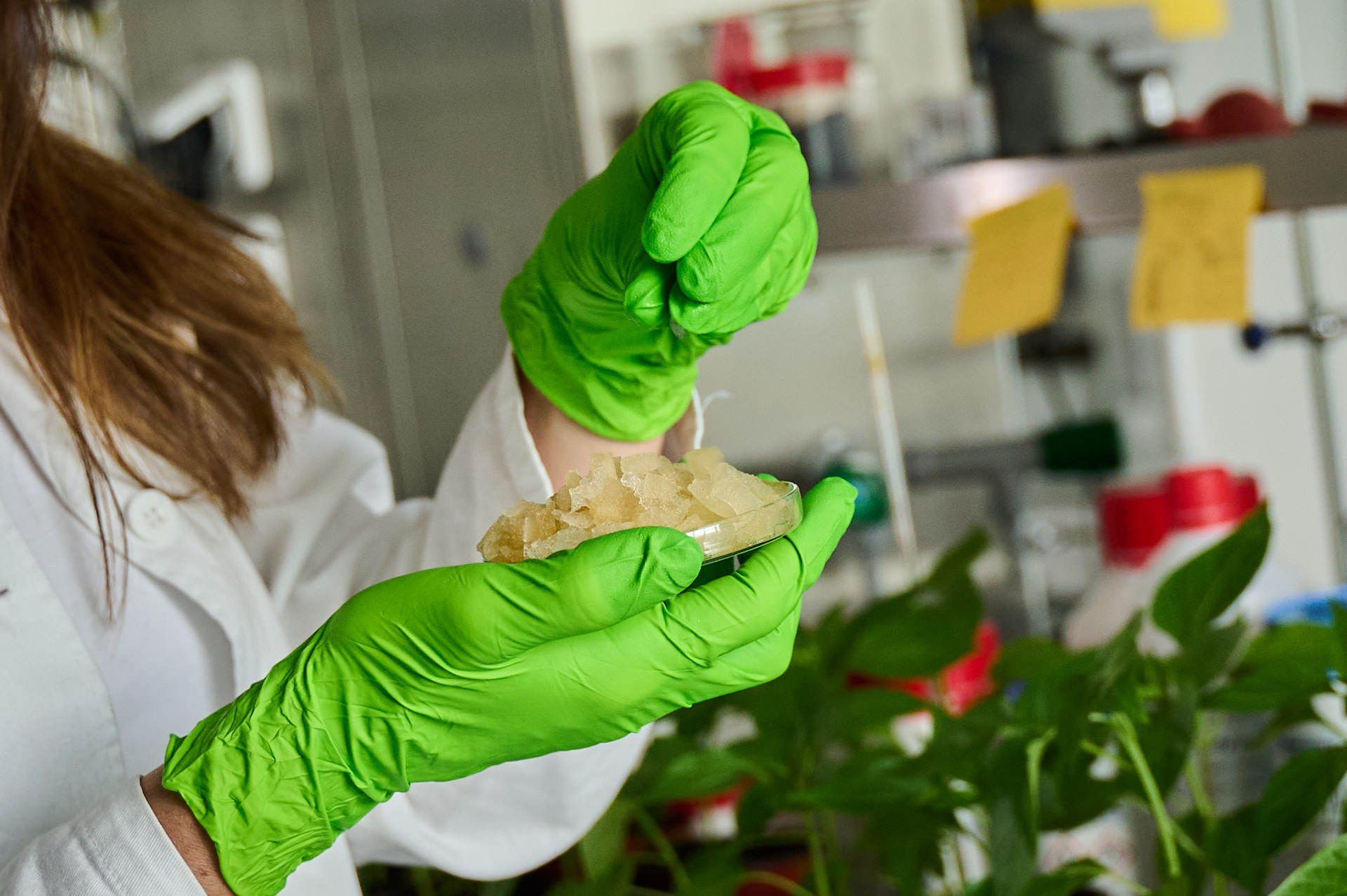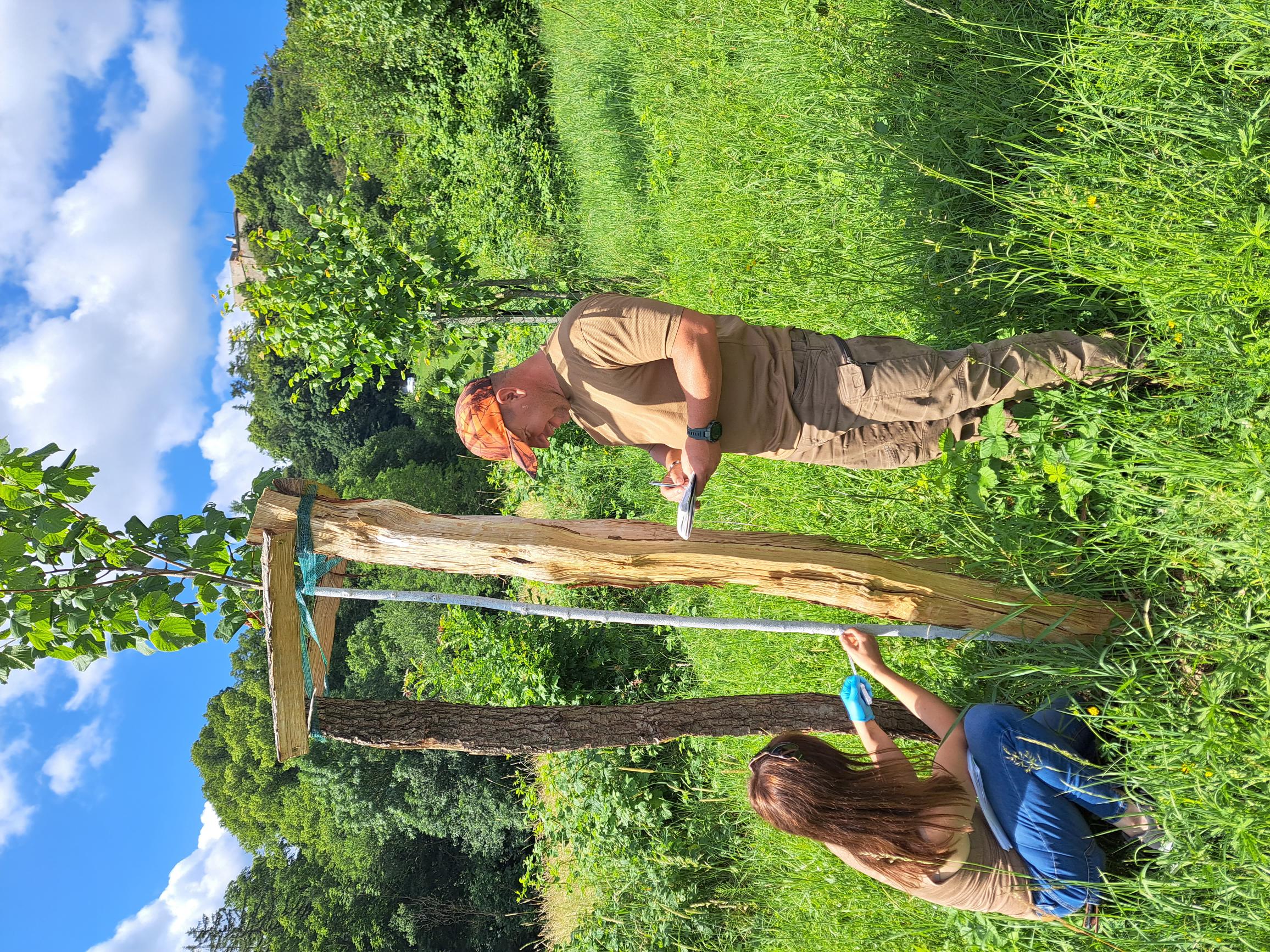
Environmentally friendly whey hydrogels help restore forests around the Buchlov Castle
23. June 2023Zlín, 23 June 2023 – Directly in the field, scientists from the Centre for Polymer Systems (CPS) at Tomas Bata University (TBU) in Zlín are testing novel hydrogels prepared from whey, still under development. As forests surrounding the castle of Buchlov regenerate, hydrogels help in the process with their capacity of retaining moisture in the soil during dry periods and the fact they are fully degradable, turning into harmless substances that are a source of nutrients for plants. Whey is one of the basic raw materials for the preparation of novel hydrogels.
“The results of the laboratory testing were very good. That is why we decided to contact Lesy České republiky, the national forest enterprise – specifically their local offices in Buchlovice and Strážnice – to test the produced hydrogels directly in the real life,” says Prof. Vladimír Sedlařík, Director of the Centre for Polymer Systems and Principal Investigator of the project.
Hydrogels developed at the Centre were used by scientists in planting oak seedlings for reforestation in the Bzenec sandpit area, where the drier climate and sandy soil make successful reforestation difficult. “We expect whey hydrogels to potentially create more suitable conditions for rooting and subsequent growth, thanks to their capacity to fix rainwater, which they then gradually release into the soil, mainly to the root system of plants during dry periods,” explains Dr. Silvie Duřpeková, a scientist at the Centre for Polymer Systems.
Through cooperation with the national forest enterprise, whey hydrogels have also found their application in the planting of a lime avenue near the Buchlov Castle. Zlín scientists teamed up with foresters to plant 30 saplings that will line the Cyril and Methodius Trail leading from the Chapel of St. Barbara to the Castle itself. “This is currently the second improvement to the initial planting operation carried out in 2014 and 2015. This time, however, for the first time, with the help of colleagues from the Centre for Polymer Systems at TBU in Zlín, a hydro absorbent was used to improve the survival rate of the planted trees and we hope that it will be the whey hydrogel which will increase the chance of these trees to survive, which we will carefully monitor while checking their health,” explains Ing. Lukáš Jankových, a technologist from the Buchlovice forest office. “Based on the results, we will evaluate the performance of the hydrogel in real conditions in the coming period. At the same time, we are in the process of preparing technologies for large-scale production of the hydrogels to make the product effective in terms of cost and environment,” adds Silvie Duřpeková.
Hydrogels can be prepared in the form of powder, crystals or granules, which are applied to the soil before sowing by spreading or burying by ploughing to a depth of approximately 20 cm. They can also be used in gardening operations or even in your home garden when planting seedlings of vegetables, flowers or trees when a small amount is added directly to the plant’s root ball or mixed with the growing medium into which the plants are subsequently planted. The results to date show that the application of whey hydrogel can help to increase soil retention capacity by 30%–40% and retain rain or irrigation water in the soil for up to 50% longer compared to soil without hydrogel.
“The hydrogel formulation is protected by a utility model and we are currently negotiating with an industrial partner interested in bringing our product to the market,” concludes Prof. Vladimír Sedlařík.
The research is supported by the Ministry of Agriculture of the Czech Republic and will be completed this year.




